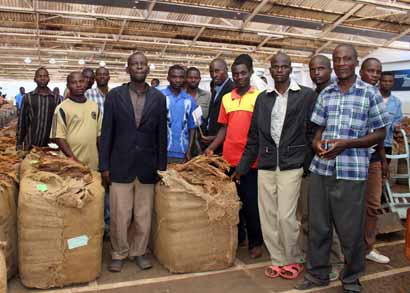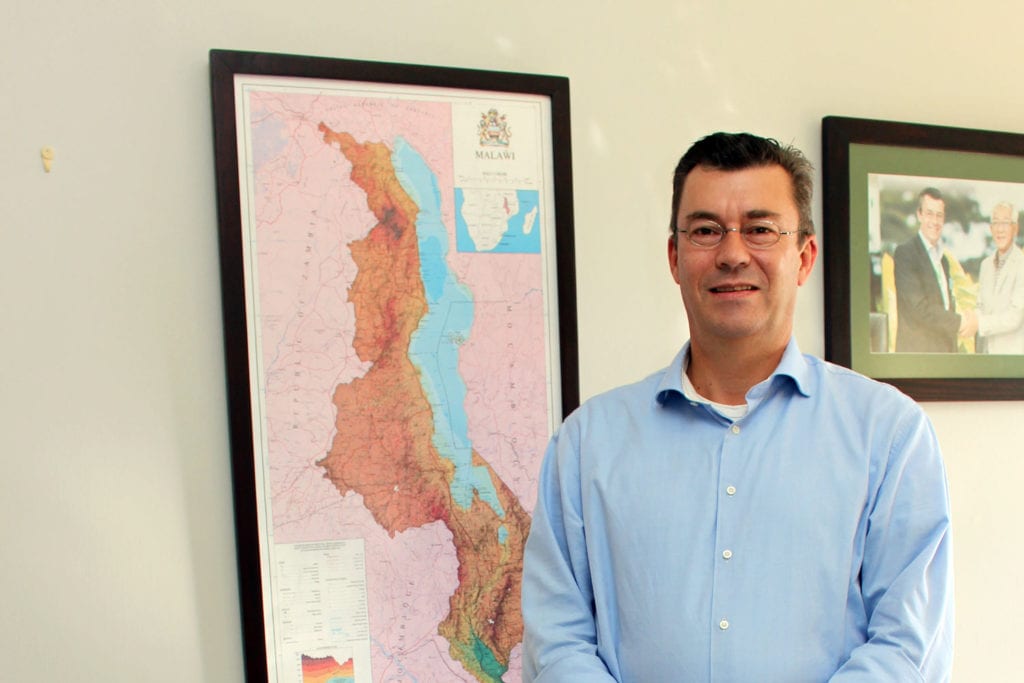
Keen to remain a leading leaf source, Malawi moves to get a better handle on its volumes while continuing to promote leaf that complies with customers’ increasingly discerning specifications.
By Taco Tuinstra
Following several disappointing seasons, Malawi tobacco growers have reason to smile again. At press time, the price per kilogram of leaf averaged $1.91 for all tobacco types, compared with $1.42 in the full 2016 selling season. The highest price for burley at the time of writing was $2.80 per kilogram.
The price increase reflects both quality and quantity. “The leaf we’ve seen so far indicates a traditional ‘feminine’ ripe Malawi burley crop with good color intensity,” says Craig Perepeczko, planning and efficiency manager of Limbe Leaf Tobacco Co., a subsidiary of Universal Corp.
It is also in short supply. The Tobacco Control Commission (TCC) estimates that Malawi’s farmers produced 102 million kg of burley, 18 million kg of flue-cured Virginia (FCV) and 3 million kg of dark fire-cured tobacco this year, against an anticipated demand of 152 million kg.
Last season, by contrast, growers brought to market 195 million kg of tobacco (all types)—considerably more than required. Predictably, prices plummeted, farmers failed to recover their expenses, and many abandoned tobacco—resulting in this year’s small crop.
The fear now is that this season’s firm prices will prompt Malawians to rush back into tobacco, setting the stage again for overproduction and poor prices, along with renewed frowns in the country’s fragile farming community.
Keen to break the boom-bust cycle that has bedeviled the Malawi tobacco market since its liberalization, the industry is working to get a better grip on production. It is taking measures to make volumes more predictable, improve farmers’ livelihoods and ensure leaf that complies with increasingly stringent corporate and regulatory requirements. The goal is to keep Malawi competitive in a rapidly changing global leaf market.
It is hard to overstate the importance of getting it right. Tobacco is Malawi’s main cash crop, accounting for 60 percent of the country’s export earnings. The industry is Malawi’s largest employer after the civil service and one of its biggest taxpayers, according to the TCC. That means the wild swings in production and prices are a problem not only for sellers and buyers but also for the country at large.
Until the late 20th century, tobacco growing was a tightly controlled activity in Malawi, limited to a privileged few and dominated by commercial production. At the urging of the World Bank, the government opened the business in 1994. Eager to get their share of the country’s “green gold,” Malawian smallholders flocked to tobacco, with most opting for burley tobacco, which is easier and cheaper to produce than the FCV variety.
Today, the country’s tobacco industry is characterized by small-scale farming and broad participation. Even after the exodus of tobacco growers in the wake of last year’s depressed marketing season, the TCC still registered a whopping 40,000 farmers for the 2017 crop. The typical tobacco farm, however, measures only between 0.1 and 2 hectares.
Critics say liberalization has increased volumes regardless of demand but lowered quality. Most smallholders lack the assets to finance their own operations or qualify for bank loans, which makes it difficult for them to secure the inputs required to produce the desired leaf quality. The sheer number of growers, meanwhile, makes it challenging to manage crop sizes.

To get a better handle on tobacco volumes, the TCC several years ago started allocating production quotas according to anticipated demand and farmers’ plot sizes. “A sustainable burley volume for Malawi is 140 million to 150 million kg,” says Fredrick Kamvazina, technical and operations manager at the TCC. Because the commission lacked resources to verify declared land holdings, however, the practice did little to prevent overproduction. Guided by the philosophy of “more is better,” farmers grew as much tobacco as they could.
Double registrations were rampant, to the extent that the land declared for tobacco production at times exceeded the territory of Malawi. The practice inspired some to jokingly speculate that farmers were growing tobacco in Lake Malawi, which covers a significant share of the country’s area. Excess land declarations not only facilitated overproduction, but they also paved the way for intermediate buyers—unregistered traders who take advantage of farmers’ vulnerability during the lean period of the tobacco production cycle.
Intermediate buying is illegal under Malawi law, which states that all tobacco, including that grown under contract, must be sold at one of the country’s four marketing centers. Because intermediate buying requires cash, it is usually practiced not by peasant farmers but by relatively well-off townspeople.
To be able to sell tobacco, the intermediate buyer unlawfully obtains a registration number by declaring nonexistent land. In the run-up to the selling season, when many Malawi farmers are without income, the intermediate buyer offers “cash now” in exchange for a steep markdown, knowing that he will receive at least the government-mandated minimum price when reselling the tobacco at auction. The transaction prevents the farmer from realizing the full value of his crop. If the tobacco was grown under contract, it also deprives the legitimate buyer of his leaf. For the industry as whole, intermediate buying means reduced traceability.
Eager to address these issues, the industry this year debuted a new farmer management system (FMS). Funded by tobacco buying companies and administered by the TCC, the system aims to improve the quality of data and step up its enforcement. One of the challenges in registering tobacco growers has been the absence of a national identification document in Malawi; there was no good way of confirming that people were who they claimed to be. A new biometric system should help the industry keep better track. “All applicants are now fingerprinted,” says Kamvazina.
The system also allows administrators to scrutinize individual growers rather than estates and growers clubs—a feature that will not only make it easier to manage volumes but also increases responsibility. “If a farmer delivers contaminated tobacco or misbehaves at auction, for example, we will be able to hold him to account personally,” says Kamvazina. While it is still early days, the FMS already appears to be paying off. Kamvazina attributes part of the recent drop in farmer registrations to better record keeping. The next step, he says, will be to map Malawi’s tobacco land with GPS technology, which is already being used by some of the buying companies.
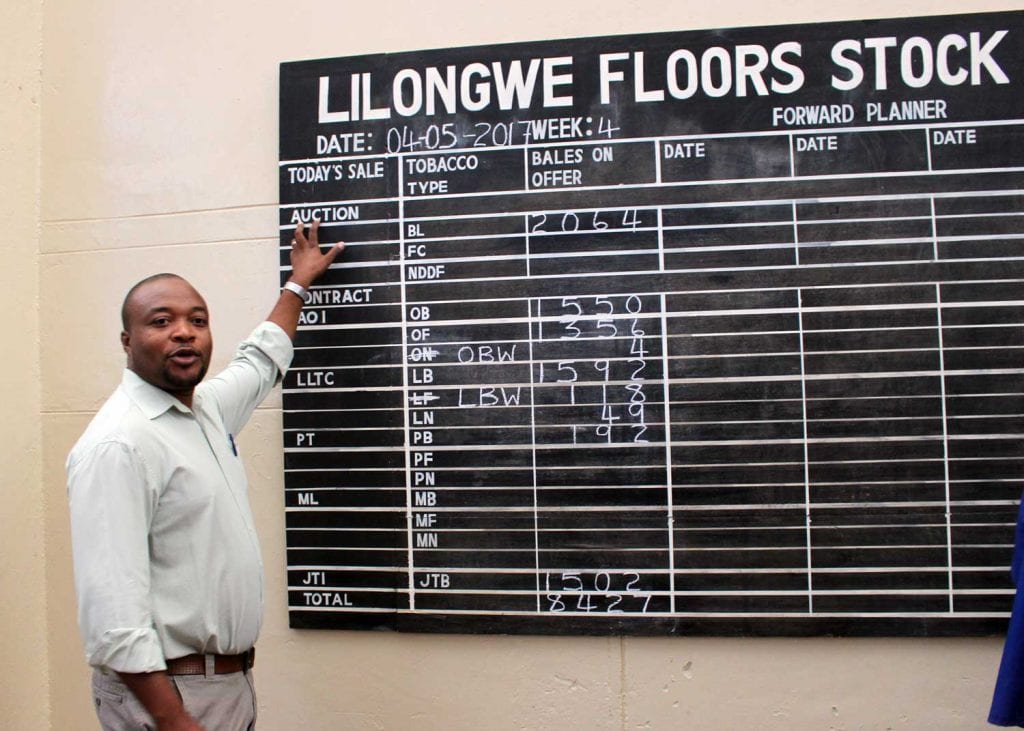
Contracting
Perhaps more important even than controlling crop volumes is ensuring product quality, a term that encompasses more than just particle size, moisture levels and smoking properties these days. Cigarette manufacturers, especially the “Blue Chip” customers, insist on tobacco that complies with the highest regulatory and corporate standards governing agricultural and labor practices. They have rules on who can work on tobacco farms (consenting adults), what seeds may be used (certified ones) and what crop protection agents can be applied, in addition to regulations aimed at minimizing the environmental impact of tobacco production, through reforestation, for example. Confronted with ever-stricter legislation, customers also insist on full traceability.
Because it’s next to impossible to comply with such requirements if you are buying tobacco at auction from tens of thousands of anonymous small-scale farmers, leaf merchants started contracting directly with growers. In Malawi, the trend began in FCV around 2003 and later expanded to burley tobacco. In 2009, cigarette maker Japan Tobacco International (JTI) took control of its leaf supply chain by integrating several tobacco leaf operations. It now works directly with farmers in Malawi and elsewhere. In many cases, the contracting agreements include a financial and agronomical support package, known as the integrated production system (IPS). By carefully monitoring inputs and production practices, the buyers ensure they get leaf that closely matches their specifications.
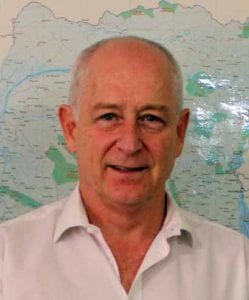
The shift has changed Malawi’s tobacco marketing environment beyond recognition. Whereas at the start of the century all tobacco in the country was sold through auctions, today 80 percent of leaf is produced under contracts—although all sales must still take place at one of the country’s four marketing centers, per Malawi law.
For the leaf merchants, it has meant a tremendous change in their operations and risk profiles. The agronomy department of Alliance One Tobacco Malawi (AOTM), for example, increased from 15 to 300 people in just a few years. JTI employs 114 leaf technicians—about one for every 100 of its growers—and operates an extensive fleet of four-wheel drive vehicles and motorcycles to reach growers in even the remotest parts of the country. Both companies aim to visit each of their contracted growers nine times per season.
The IPS has boosted productivity. Leaf buyers have witnessed a doubling of burley yields per hectare, to 1,500 kg or more, since implementation of the system. Yet Hugh Saunders, managing director of AOTM, insists there is no great science involved. “It is about doing the right things, at the right time and in the right amounts,” he says.
The productivity gains not only generate more tobacco income; they also create opportunities for new revenue streams, as land previously reserved for tobacco growing can be released to other crops. “Thanks to the close collaboration between our leaf technicians and the farmers, we continue to optimize the quality and yield per hectare,” says Fries Vanneste, vice president and managing director of JTI leaf services in Malawi. “Today, we need only half the area we needed when we started.”
Vanneste believes this is a win-win situation. “We get the quality leaf we’re after, and farmers can count on greater incomes,” he says. Not only will growers be able to sell their higher-quality tobacco at a higher price; they can also cultivate the freed-up land with alternative crops, generating new sources of income.
That is a welcome development. The tobacco industry has been frequently criticized for hogging precious farmland, and Malawi has been under pressure from international health activists to abandon tobacco in favor of food and other crops. Few people with on-the-ground knowledge see a ready substitute for tobacco, however. Not only does tobacco yield higher returns than any other local crop, but it also benefits from the most sophisticated marketing structure in Malawi.
“We don’t believe there is a crop that can single-handedly replace tobacco,” says Erica Maganga, principal secretary at the Malawi Ministry of Agriculture, Irrigation and Water Development. “But we encourage the cultivation of crops in addition to tobacco.”
Industry critics may be surprised to learn that Malawi’s big tobacco traders are preaching—and practicing—the same message. IPS support often extends to nontobacco crops. Through its contracted farmers, AOTM produces more maize than it does tobacco, according to Saunders.
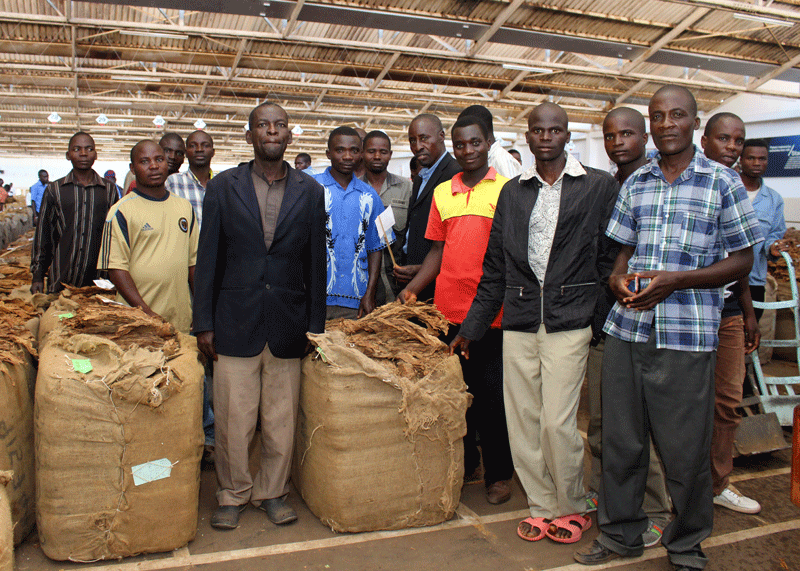
Compliance
In addition to greater yields, the IPS has contributed to product quality in the broadest sense of that term. For example, the system is helping the industry tackle deforestation. Although tobacco growing accounts for a lower share (between 7 and 10 percent) of Malawi’s tree loss than some headlines suggest, the sector has accepted responsibility. “Tobacco is blamed with some justification—but we are the only ones doing something about it,” says Perepeczko. Most deforestation in Malawi is due to harvesting wood fuel for cooking. The brick-making business, too, is a major culprit but has managed to remain largely out of the crosshairs of environmental activists.
Because there is no silver bullet, reversing deforestation requires a multipronged approach. In addition to providing tree seedlings and requiring contracted farmers to reserve a share of their properties for trees, tobacco companies are experimenting with new barn designs. Rocket barns burn wood more efficiently than do traditional ones, and “live barns” avoid the need to cut trees. To further reduce the pressure on Malawi’s forests, tobacco companies have been supplying their farmers with efficient wood stoves and regenerating sources of fuel and building materials, such as bamboo.
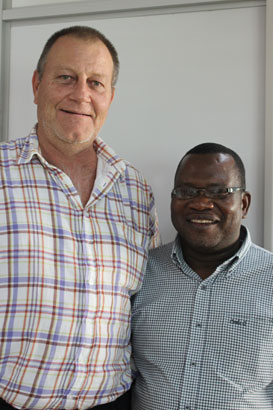
Nontobacco-related material (NTRM), meanwhile, remains a major focus in the industry’s commitment to delivering a compliant product. Needless to say, foreign objects such as strings and plastics must be avoided at all costs. Sand, in particular, is an issue in dusty Malawi—not so much because of toxicity but because of its damaging effect on processing equipment. According to Walter Pohl, managing director of Premium Tama Tobacco Malawi, it can account for between 7 and 8 percent of tobacco weight. “We have the most expensive sand in the world,” he jokes.
The industry has invested millions of dollars in instruments that detect and remove NRTM during processing. They are technological marvels, considering that some factories process up to 15 tons of leaf per hour, but trade representatives agree that the best place to tackle the problem is at the source, on the farm. Companies require their contract farmers to keep tobacco separate from potential contamination sources, such as livestock and plastic. Some even pay farmers for each piece of plastic that they collect and remove from the farm. “Slattered” baling tables are helping reduce sand by keeping tobacco off the ground.
The IPS has also been instrumental in addressing child labor—a tricky subject in a country where children are expected to help with family chores, including farm work, from a young age. “It can be difficult to differentiate between child labor and activities that are part of the normal socializing process in Africa,” says Jimmy Gray Kasamale, general manager of Malawi Leaf Co., the country’s only indigenous leaf merchant. “We need to distinguish between child work and child labor,” echoes Maganga of the ministry of agriculture, recalling the many hours she spent in her youth helping with common household chores such as fetching water. Child labor, by contrast, is generally understood to involve activities that expose a child to “adult” risks, such as chemicals or sharp tools, or tasks that prevent them from getting an education.
The industry has zero tolerance for child labor in its tobacco growing contracts. It is also addressing the issue by investing in education in its sourcing areas. As of June 2016, JTI had provided 121 scholarships and refurbished seven schools, reaching 12,000 pupils in Malawi. Simple measures can have dramatic effects. For example, female enrollment at Chitukula primary school, near Lilongwe, shot up after JTI constructed new classrooms and latrines.
By drilling boreholes, tobacco companies do more than just provide access to clean water; they help improve living standards. Having clean water readily available does not only support farming activities, but it also helps the community to better hydrate, improve sanitation, prevent diseases and use time more efficiently. Fetching water is traditionally a woman’s job in Malawi, and girls can spend many hours walking between their villages and natural water sources—time that can now be spent on other activities, such as studying.
The tobacco industry in Malawi is heavily involved in corporate social responsibility initiatives
The tobacco industry is heavily involved in corporate social responsibility activities, especially in countries like Malawi, where the government lacks the resources to carry out basic duties. Some dismiss such support as patronizing, saying that the industry would do better to pay growers more for their tobacco. Paulo Saath, director of leaf operations at JTI, believes such criticism overlooks the challenge of financial discipline that exists in many sourcing countries. Too often, he says, growers will spend their earnings instantly, leaving no cushion for lean times. Traders tell stories of farmers marrying extra wives or buying multiple bicycles in the wake of their tobacco sales—only to go hungry during the planting period, when income dries up.
With education and special savings accounts, among other measures, tobacco companies try to increase financial literacy among their contracted farmers.
Tobacco executives in Malawi are also keen to dispel the notion that they want to keep farmers hooked on loans, as critics have suggested. Because smallholder farmers lack collateral to obtain bank loans required to fund their operations, leaf merchants assist with financing—but this is not the dealers’ preferred business model. “While we are continuously looking for ways to support our farmers, banking should not be our core business,” says Vanneste. “At JTI, we support farmers who want to be able to finance their own operations over time. We work together with them to identify solutions to make sure they eventually become self-sufficient.”
By increasing yields and quality, the company hopes to improve growers’ earnings and thus graduate them out of loan dependency.
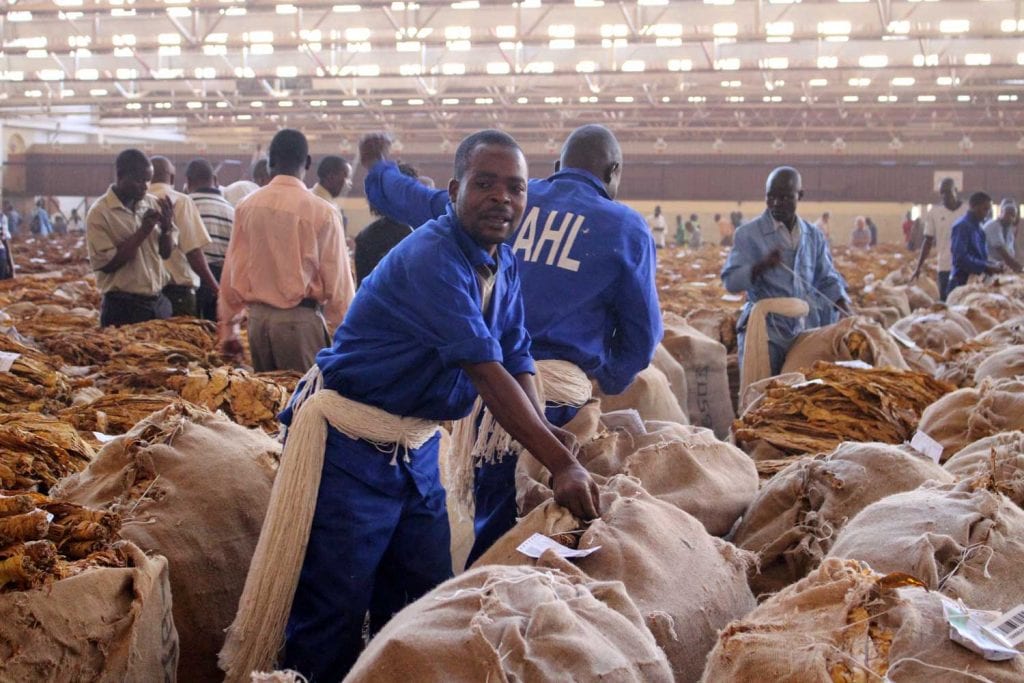
Moving forward
While the IPS has increased tobacco yields and quality, and the FMS should help the industry get a better handle on volumes, plenty of room remains for further improvement. Many believe the supply chain could be more efficient, for example. “There are too many middlemen,” says Saath. Between baling, transporting, warehousing and other activities, tobacco is handled 19 times from the time it leaves the farm until it arrives at the factory gate. Not only does this reduce yields through leaf degradation, but it also adds costs, as each service provider demands a fee. Too many levies and rents embedded in the current market structure continue to create a burden, reducing returns for the farmer. Especially transportation represents a high cost to farmers, according to the Phindu Tobacco Growers Association.
Some would like to get rid of the requirement for contracted tobacco to be purchased at auction, having farmers deliver their leaf directly to the factory instead. Bypassing the selling floors, proponents argue, would save sellers and buyers money. Others favor the current system because they believe it promotes transparency. “It makes it easy for the government to collect taxes and for farmers to compare prices,” says Mark Ndipita, corporate affairs manager at AHL Group, which manages Malawi’s tobacco auctions. Without the public scrutiny of at-auction sales, he says, farmers could be taken advantage of.
Industry representatives would also like the IPS to be recognized in Malawi’s legislation. Dating from the 1970s, Malawi’s tobacco act was written for a different era, before sustainability, traceability and contract growing. Currently, the IPS operates under a ministerial directive, which in theory could be revoked at a moment’s notice. Tobacco companies prefer the certainty of an act. “We’d like to have a stronger guarantee of our investments, and we must protect the interest of the grower, who is the anchor of our business,” says Vanneste. A new tobacco act was set to be debated in parliament at press time, but industry representatives were skeptical about the prospect of quick passage, considering the glacial pace of the process to date.
The world, by contrast, is changing quickly. Stagnating cigarette sales and tobacco-saving technologies have reduced demand for tobacco. “Tobacco companies can make a lot more cigarettes from a kilo of tobacco than they could in the past,” says Pohl. New products, such as e-cigarettes, are unlikely to compensate for the decline of combustible cigarettes, as they require less leaf tobacco.
To reduce cost and complexity, tobacco companies have been bringing down the number of sourcing areas. The task for Malawi is to remain on the map. To remain relevant and agile in the rapidly changing environment, the country will have to ensure its growers are competitive not only domestically but also internationally. Only by producing leaf that meets the highest standards in terms of quality, compliance and traceability will it be able to weather the global downturn in tobacco. Industry representatives acknowledge that Malawi has its work cut out, but they are determined to succeed. As one trader puts it, “We will be the last ones to switch off the lights.”


